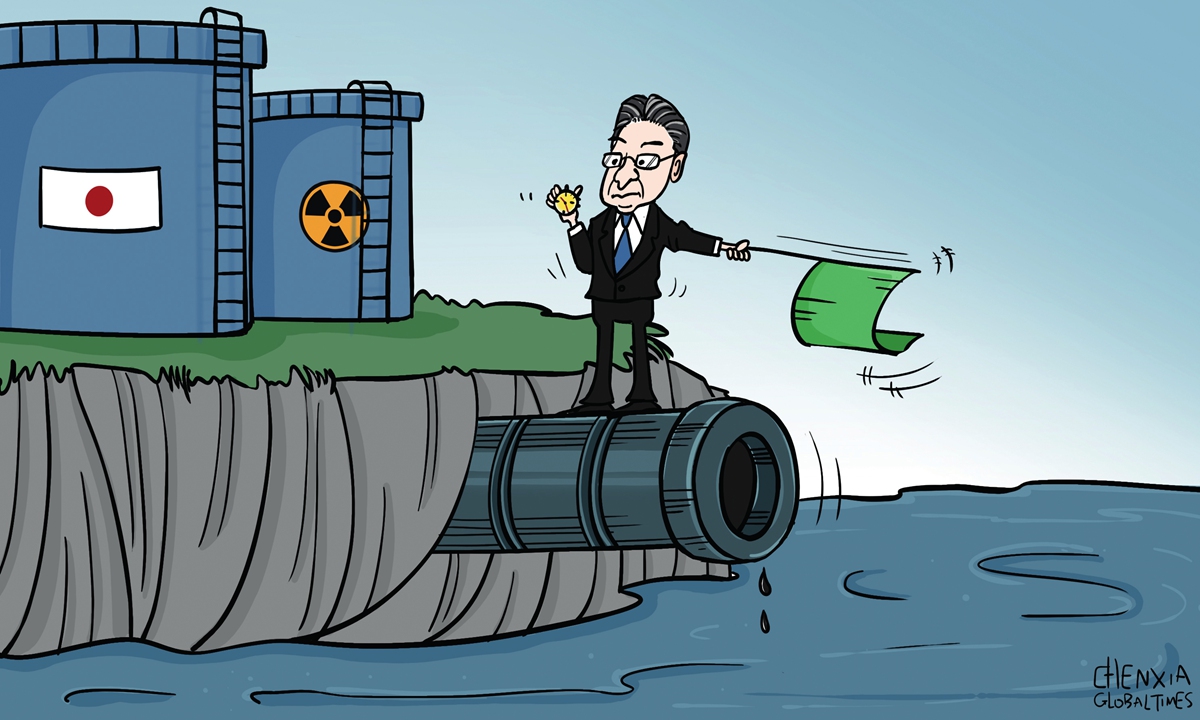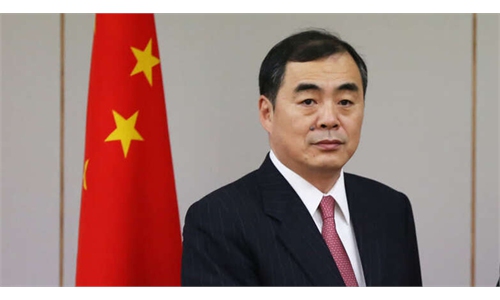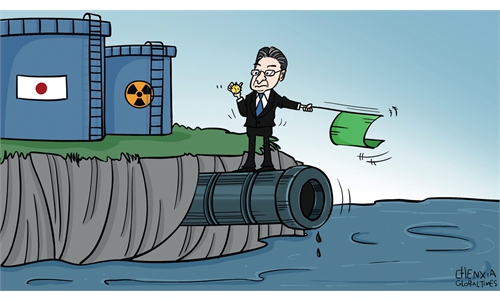Kishida triggers backlash by saying dumping Fukushima nuclear water can’t be delayed

Illustration: Chen Xia/GT
Instead of taking full advantage of its own science and technology to process the Fukushima wastewater and deliver a qualified answer to the world over the water treatment, Japan has opted for its irresponsible plan to dump the wastewater as soon as possible and provided self-contradictory explanations for the decision, said Chinese experts.
Speaking at his first visit to the tsunami-wrecked Fukushima nuclear plant since taking office, Kishida said the planned mass disposal of wastewater stored at the facility cannot be delayed, claiming his government would work to reassure residents nearby the plant about the technical safety of the wastewater disposal project, Asahi Shimbun reported Monday.
South Korea has expressed concern over Kishida's plan to release the radioactive wastewater, according to South Korean media on Monday.
"Japan's decision [to discharge the wastewater] was made without enough consultations with neighboring nations," a senior South Korean foreign ministry official said. "We have expressed serious concerns and opposition to its plan, which could affect our people's health and security as well as the ocean environment."
The Tokyo Electric Power Company Holdings Inc. (TEPCO) has planned to build a one-kilometer undersea tunnel to release contaminated radioactive water out to sea, amid condemnation from fishermen, media reported in late August.
The plan again showed that Japan's "explanation" over the safety of the water is "self-contradicting," Liu Jiangyong, vice dean of the Institute of Modern International Relations at Tsinghua University, told the Global Times on Monday.
Assuming the wastewater has been processed without any side effects or pollution as the Japanese government claimed, and that people can even drink it, why does the Japanese government not simply discharge the water into the sea but plan to dump the water 1 kilometer away from the local residents? asked Liu. He also questioned the claim that it will have no impact on the marine environment and life chain, and asked why the water could not be recycled on land if the wastewater can be processed so cleanly and safely.
Japan can't answer any of these questions, said Liu, noting that dumping the nuclear water shows that the water is "unusual."
The ideal plan would be for the Japanese government and TEPCO to process the wastewater to a qualified level and recycle it, rather than dump it into the sea, said Liu. "That would be a responsible plan to its people and the international community," he added.
Also, Kishida has said he remains committed to atomic energy and intends to restart plants that have been mothballed since the disaster in Fukushima in 2011.
Japan's return to nuclear power faces a test, as the question of restarting all nuclear power plants in Japan and developing nuclear power in the future are controversial topics in Japan, Liu said.
Kishida now faces a crucial moment as the 2021 Japanese general election approaches. As energy supply markets around the world are very tight, and Japan is no exception, Kishida is trying to win more support at a time when his approval ratings are low. So vowing to restart the nuclear reactors to relieve the energy shortage can be viewed as one of his political calculations, Liu believes.




